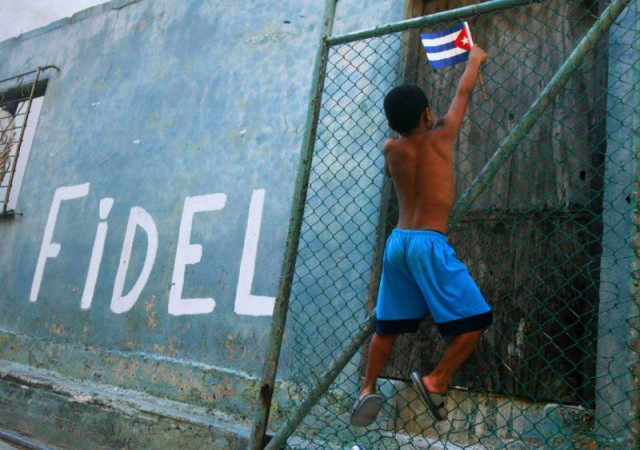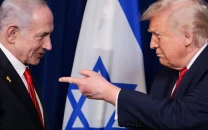Cuba: Castros, communism and cigars
Cuba opens a new chapter when Raul Castro steps down from the presidency, ending six decades of single-family rule

Cuba will open a new chapter on April 19, when Raul Castro stands down, ending six decades of single-family rule. PHOTO: AFP
Here are some key facts about the island.
Ties between communist Cuba and the United States, roughly 150 kilometers (90 miles) apart, have been fraught due to US occupations and Cold War enmity that took the neighbors to the brink of nuclear war.
A historic thaw began in 2014, when Barack Obama and Raul Castro simultaneously announced plans to normalize ties.
Raul Castro receives US lawmakers on visit to Cuba
In 2015, they reopened their embassies and the following year, Obama traveled to Havana for talks with Castro, setting aside a bitter five-decade standoff.
A US trade embargo first set in 1962 remains in place, however.
The rapprochement has been partially rolled back by Obama's successor, Donald Trump.
In October 2017, Trump held Cuba responsible for mysterious "acoustic attacks" against US diplomats stationed there.
On January 1, 1959, dictator Fulgencio Batista, in power since a 1952 coup, was overthrown in a revolution led by Fidel Castro who established a socialist republic.
'Elusive' brain injuries seen in study of US diplomats in Cuba
In 1961, anti-communist Washington severed diplomatic relations. Months later, Castro's forces defeated 1,400 rebels in the US-backed Bay of Pigs invasion.
The US discovery of Soviet missiles in Cuba in 1962 set off the most serious crisis in the Cold War, threatening nuclear conflict.
Cuba was plunged into economic turmoil when the Soviet Union collapsed in 1991, surviving after legalizing use of the US dollar and opening up to tourism.
In 2006, Castro, who was ill, temporarily transferred power to his brother Raul, the defense chief.
Raul was named president in 2008 and three years later, Fidel also handed him leadership of the all-powerful Communist Party.
Fidel died in November 2016, aged 90.
Cuba became a Spanish colony after explorer Christopher Columbus landed in 1492, and it used African slaves for labor until 1886.
Cuba vote opens final chapter of Castro era
During its 1895-1898 war of independence, the last of three, the United States backed the Cuban rebellion against Spain and sent troops to the island to shore up the struggle.
After Spain's defeat, Cuba was essentially ceded to the United States, which installed a provisional military government.
Cuba became independent in 1902, but Washington retained control by grafting the "Platt Amendment" onto its constitution, giving it the right to intervene in Cuban affairs.
Most of the law was repealed three decades later.
Eighty percent of the Cuban economy is controlled by the state, but Raul Castro unveiled reforms in 2011 to boost the private sector's role.
A leading source of hard-currency income comes from thousands of doctors hired out to countries in Africa and Latin America under government-to-government contracts.
The island also earns revenue from exports of nickel, tobacco and citrus products, as well as from tourism, with 4.5 million visitors in 2017.
Sale of Havanas, the reputed Cuban cigar, leaped 12 percent in 2017 after the Chinese developed a taste for them.
The island was a leading sugar exporter until the collapse of the Soviet Union, its major buyer, but it is trying to revive the industry.
In 2017, China became Cuba's top commercial partner, replacing Venezuela, which is mired in a major economic crisis.
Economic growth on the island, home to 11 million people, rose to 1.6 per cent in 2017 up from 0.5 per cent the previous year.



















COMMENTS
Comments are moderated and generally will be posted if they are on-topic and not abusive.
For more information, please see our Comments FAQ